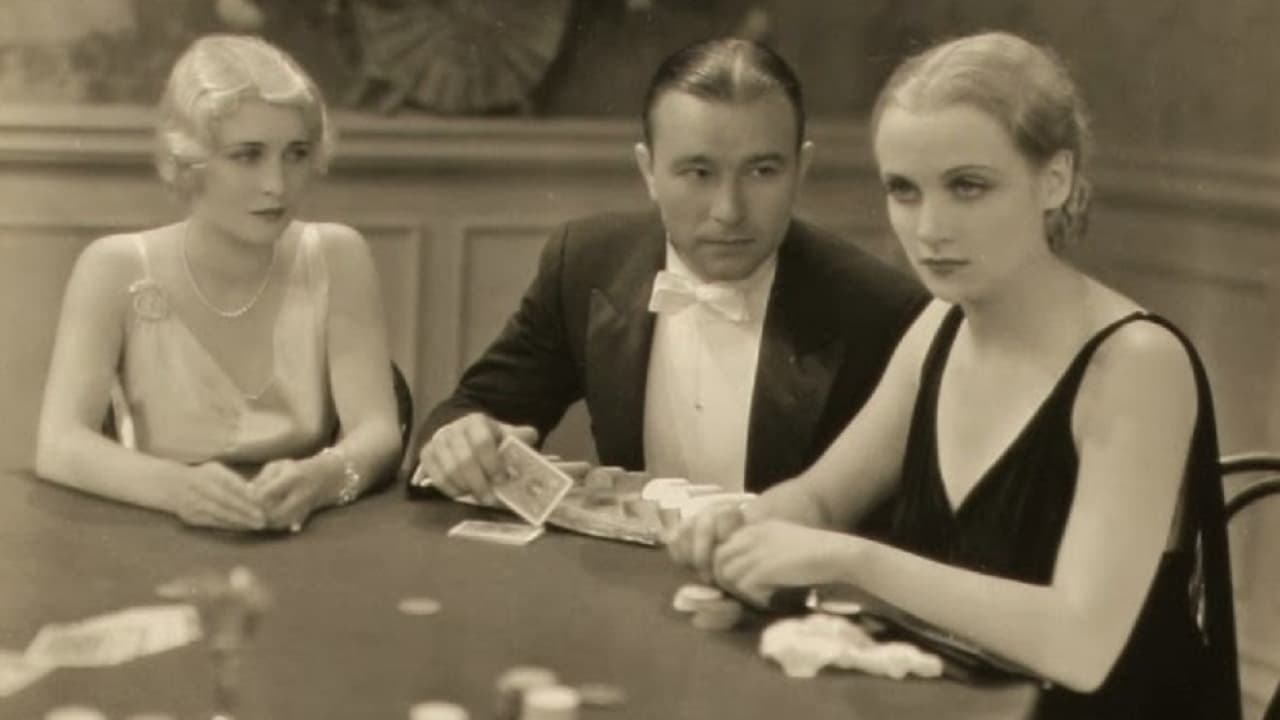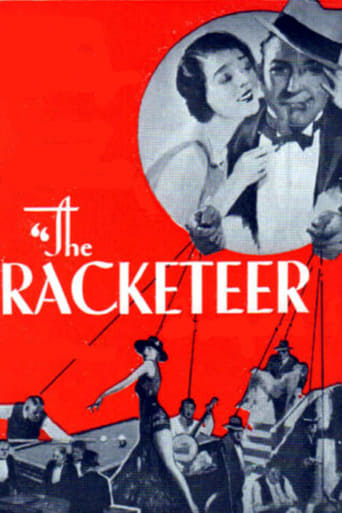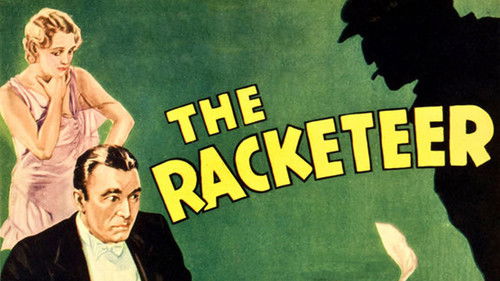Matialth
Good concept, poorly executed.
InformationRap
This is one of the few movies I've ever seen where the whole audience broke into spontaneous, loud applause a third of the way in.
Phillipa
Strong acting helps the film overcome an uncertain premise and create characters that hold our attention absolutely.
Delight
Yes, absolutely, there is fun to be had, as well as many, many things to go boom, all amid an atmospheric urban jungle.
Tweekums
Mahlon Keane, the racketeer of the title, is in control of New York; if a serious crime takes place he knows about it; whether it is a bank robbery or the theft of the police commissioner's car. He enjoys winding up the police; in the opening scene we see him give a drunken violinist fifty dollars and put him in a cab so a cop can't arrest him for vagrancy. The violinist is a friend of attractive divorcée Rhoda Philbrooke; she is determined to get him off the booze and back on the stage but lacks the money she needs. She takes the fifty bucks to a charity evening and proceeds to a poker table where Keane is acting as dealer. Things start well but then it looks like she is going to lose; until she is able to switch a card while the other players are distracted. Keane sees her cheat but covers for her. Later he visits her and helps with her friend. As time passes they grow closer but Keane's business could ruin their relationship.Being over eighty years old it isn't surprising that the film looks dated… literally. No doubt it was nice and crisp when first shown but by the time it was put on DVD the print was inevitably rather scratched and otherwise degraded. At sixty six minutes it is fairly short but it doesn't feel too rushed. Robert Armstrong does a good job as Keane; a believable villain who can be threatening one minute and charming the next. Carole Lombard is equally good as Rhoda; attractive and likable but also a flawed character. The ending won't come as much of a surprise as no criminal could be seen to get a happy ending in those days. The action seems very tame by today's standards and some of the talking seems a little stagey; still I found this an enjoyable way to pass an hour.
wes-connors
New York City racketeer Robert Armstrong (as Mahlon "Mahl" Keane) helps beautiful divorcée Carole Lombard (as Rhoda Philbrooke) reform boozing Roland Drew (as Anthony "Tony" Vaughan), then wants her hand in marriage. She feels loyalty toward Mr. Armstrong, but Ms. Lombard apparently left her millionaire husband for Mr. Drew, who can play the violin beautifully when he's not drinking. This early sound film features some poor line delivery and a few good camera angles. Unfortunately, there is too much of the former and not enough of the latter.**** The Racketeer (11/9/29) Howard Higgin ~ Robert Armstrong, Carole Lombard, Roland Drew, Paul Hurst
MartinHafer
Wow, was this version of THE RACKETEER tough to watch! While none of the other reviews have mentioned this, the public domain version I watched was seriously flawed. The sound track was off by about 10 seconds--meaning the dialog and action never came close to matching. So, you'd hear something occur well before you saw it--a very confusing proposition! The worst is where you hear a gun shot and only later doe the guy get hit and slump to his death in a taxi.While this seriously marred the film, it also made concentrating on the dialog easier--and showed the serious shortcomings of it as well. The dialog was simply awful--often delivered with almost no inflection or feeling. As one review said, it was like watching a high school play. Part of this is understandable, as sound was a new medium, but this film's dialog was bad even compared to other 1929 films--really bad. And, like many of these early sound films, the film was just too talky--with sappy and overly melodramatic language and just not much action. And you'd THINK with a title like "The Racketeer" that there would be some action!! However, it's really a sappy romance--with very little action.The film finds Carol Lombard straddled with an alcoholic musician. She herself ends up stealing to try to take care of him--and the crook, Robert Armstrong, comes to her assistance. When Armstrong catches her cheating at cards, he covers for her and then helps the drunk brother to get on his feet--and naturally he falls for her in the process. The problem is that once the drunk sobers up, he, too, wants Lombard and she needs to choose between them. Wow...a recovering drunk or a mobster...talk about a couple great prospects! Overall, it's a bit hard to rate considering the lousy print I saw. However, even if you ignore this, the film has a lot of problems due to its poor use of dialog and excessively talky nature. And...it was sappy too boot.
classicsoncall
While watching the movie, it struck me that this might be the closest I've seen to a silent film actually put to dialog, the execution of which seems like actors from a high school play who simply studied their lines and recited them from memory. We know that the principal players were much better than that from their later work, so take it as part of the learning curve in going from silents to talkies. Add to that a bit of overacting, a prime example being the conversation between Mal (Robert Armstrong), Gus (Kit Guard) and Squid (Al Hill) when discussing Weber's murder. Armstrong does such a quick double take that it's comical, I caught myself in a knee jerk reaction laughing over the way the trio handled that scene.The story itself takes a while to unfold, and you don't get a sense of where things are going until well into the picture. Once you get there though, it turns out to be a fairly interesting ride, as Rhoda Philbrooke (Carol Lombard) finds her affections torn between gangster Mahlon Keane (Armstrong) and alcoholic musician Tony Vaughan (Roland Drew). I thought the poker scene in which Mal covers for Rhoda's dishonesty was cleverly done, initiating the relationship between the two.So let's see, a cab ride in New York City in 1929 for sixty five cents - not a bad bargain. Combine that with a letter that could be simply addressed using a person's name and the town in which he lives (Mahlon Keane, Roslyn, Long Island), and I find myself longing for those good old days. Rhoda's fox fur was a bit much though, don't you think? All in all, not a bad little entry on the sixteen disc "Mobsters" DVD set from Platinum Disc, this being one of the earliest of the films chronologically. Perhaps better viewed as a curiosity piece than for it's story, it's a fine example of an early talkie that gives one a good idea how the transition from silents was accomplished.


